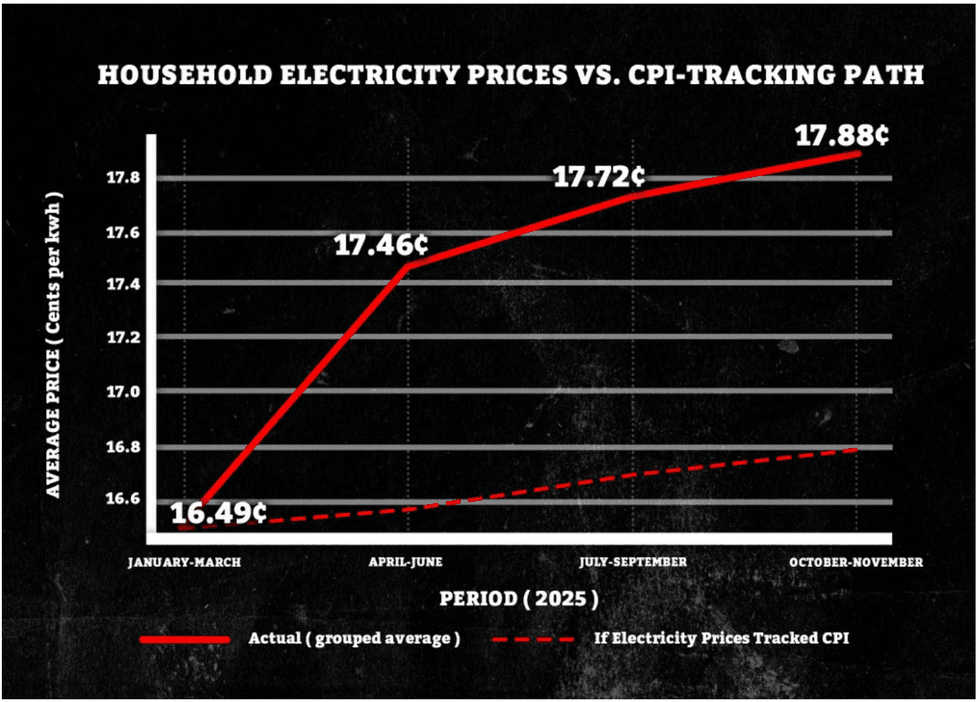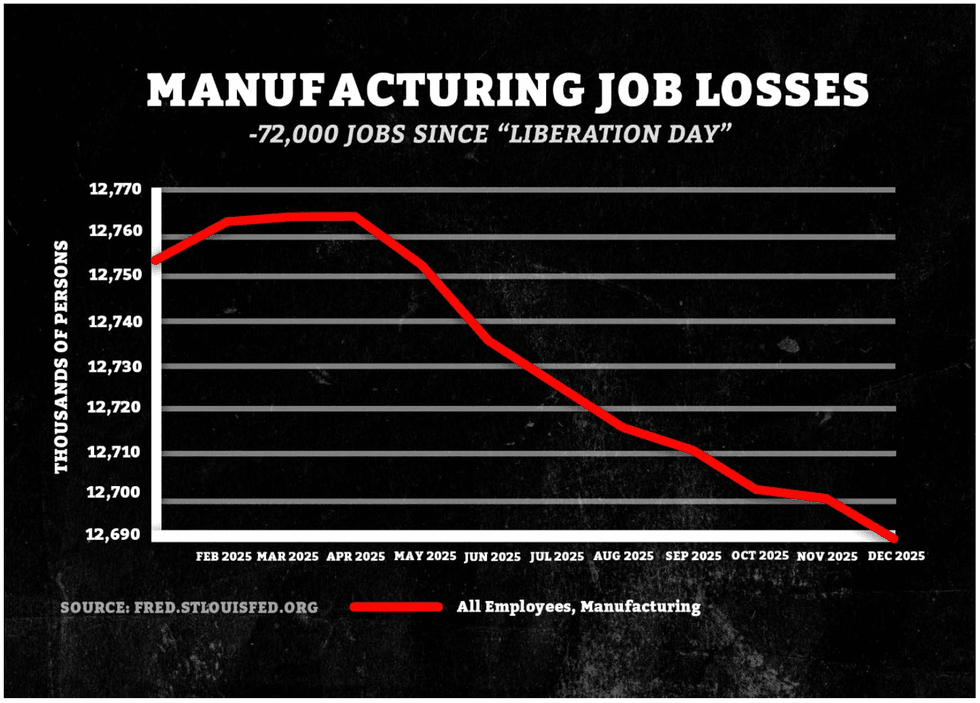

SUBSCRIBE TO OUR FREE NEWSLETTER
Daily news & progressive opinion—funded by the people, not the corporations—delivered straight to your inbox.
5
#000000
#FFFFFF
To donate by check, phone, or other method, see our More Ways to Give page.


Daily news & progressive opinion—funded by the people, not the corporations—delivered straight to your inbox.
A major new report finds that recent national and global efforts to increase oil and gas production and liquefied natural gas (LNG) exports have dire impacts on public health and the climate. Authored by doctors and scientists, the report provides a critical accounting of the implications of fracking and related activities, synthesizing findings from over 2,000 scientific studies and government reports.
As pressure intensifies on the Biden administration to accelerate production and export of U.S. gas, the report finds:
The eighth edition of the Compendium of Scientific, Medical, and Media Findings Demonstrating Risks and Harms of Fracking is being released today by Concerned Health Professionals of New York (a project of the Science and Environmental Health Network) and Physicians for Social Responsibility (winner of the 1985 Nobel Peace Prize) released. By bringing together and analyzing the evidence comprehensively, the report uniquely provides an assessment of the state of the fracking industry and its impacts. Amidst the report's analysis are three big-picture findings that are essential for the public and policymakers to understand, including governors, state and local officials, and especially President Biden and his administration:
Sandra Steingraber, PhD, co-founder of Concerned Health Professionals of New York and an author of the Compendium, said, "The scientific evidence reveals conclusively that fracking causes widespread and severe harm to people and the climate. For over ten years, individual studies have demonstrated impacts in multiple areas, including toxic air pollution, water contamination, radioactive releases, earthquakes, methane emissions, and much more. The Compendium takes stock of all the science together, which shows that continuing and expanding fracking brings with it a grave cost."
Barbara Gottlieb, Environment & Health Program Director of Physicians for Social Responsibility, said, "People, nurses, and doctors across the United States have been pointing to harms from drilling and fracking for well over a decade. Now there is clear and overwhelming scientific evidence showing that fracking makes people sick, degrades the environment, and imperils the climate. From a public health perspective and a climate perspective, stopping fracking is imperative."
Kathleen Nolan, MD, MSL, of Physicians for Social Responsibility and Concerned Health Professionals of NY, said, "States and countries that have banned fracking are leading the way to a stable and healthy climate future, preventing poisonous fracking chemicals from causing birth defects, cancer, heart disease, asthma and pneumonia, diseases of other organs and tissues, and early death. Banning fracking also prevents induced earthquakes and greatly reduces emissions of methane, carbon dioxide, toxic gases, and particulate matter into our atmosphere. We know what must be done: now we must do it - and do it quickly."
Sharon Montes, MD, of Physicians for Social Responsibility - Colorado, from Loveland CO, said, "We all too often see people living near fracking operations getting sick. In the past, we didn't know why. Today there is strong, peer-reviewed evidence linking proximity to fracking to a host of serious health effects. In many cases, the harms of fracking are borne disproportionately by minority and low-income communities, underscoring that fracking is a health equity issue and an injustice."
The Compendium includes a two-page "Summary of Findings," a detailed analysis of the current political, cultural, and economic context of fracking, 16 emerging trends from the science, case studies of drilling and fracking in California and Florida, and detailed compilation of studies and findings by topic.
From the Summary of Findings: "In sum, the vast body of scientific studies now published on hydraulic fracturing in the peer-reviewed scientific literature confirms that the climate and public health risks from fracking are real and the range of environmental harms wide. Our examination uncovered no evidence that fracking can be practiced in a manner that does not threaten human health directly or without imperiling climate stability upon which human health depends."
Physicians for Social Responsibility mobilizes physicians and health professionals to advocate for climate solutions and a nuclear weapons-free world. PSR's health advocates contribute a health voice to energy, environmental health and nuclear weapons policy at the local, federal and international level.
A report released Wednesday by a key Democratic senator details how President Donald Trump's "economic policies are making life unaffordable for millions of American small businesses, their workers, and their customers."
Since Trump returned to power last year, "America's 36 million small businesses and their workers have faced increased costs for everything from healthcare to electricity, groceries, childcare, housing, and other everyday necessities," notes Pain Street, the new report from Sen. Ed Markey (D-Mass.), ranking member of the Senate Committee on Small Business and Entrepreneurship.
The report highlights Republicans' so-called One Big Beautiful Bill Act (OBBBA), which slashed various benefits for US families, and their refusal to extend Affordable Care Act (ACA) subsidies that helped over 20 million Americans afford health insurance.
The OBBBA's $1 trillion Medicaid cut "is devastating for small businesses," the document declares, noting that 630,000 owners and more than 7.5 million workers at such companies rely on the federal program for healthcare coverage. Additionally, over 10 million owners and employees relied on the ACA tax credits that expired at the end of last year.
The publication also points to the president's attacks on clean energy and support for the planet-wrecking fossil fuel industry that helped him secure a second term. It says that "household electric bills have increased by 11.5%, and commercial electric bills have increased by 9%," stressing that such costs have climbed "more than three times faster than the overall rate of inflation."

The report also spotlights the "whiplash and cost of Trump's reckless tariffs," emphasizing that while the president often claims foreign countries are paying for his import taxes, "analysis by the Kiel Institute for the World Economy found that 96% of Trump's tariffs are being paid by American importers and consumers."
Specifically, since last March, US small businesses have shelled out more than $63.1 billion because of Trump tariffs. California—the world's fifth-largest economy—leads the state-by-state breakdown, at $14.3 billion, followed by Texas ($7 billion), New York ($4.9 billion), New Jersey ($4.1 billion), Georgia ($3.9 billion), Florida ($3.6 billion), Illinois ($2.3 billion), Ohio ($2 billion), Michigan ($1.7 billion), and South Carolina ($1.6 billion).

The president also claims that his tariffs are spurring a "manufacturing renaissance," but "approximately 98% of manufacturers in the United States employ fewer than 500 workers, with 75% of manufacturers employing fewer than 20," the report states. "US manufacturing shrank for the 10th consecutive month in December, and US factories have shed 72,000 jobs since Trump's 'liberation day' in April."
Adding to the evidence of Trump's negative impact, the Bureau of Labor Statistics announced Wednesday that across all sectors, US employers added just 181,000 jobs last year, far below its initial estimate of 584,000, and the country's economy has more than a million fewer jobs than previously reported.

Markey's staff further found that "soaring rents have left a record 22.6 million renters—approximately 50% of all renters in the US—struggling to afford their rent," 70% of families said last year that raising children is too expensive, and Trump's deportation agenda is estimated to reduce the number of immigrant and US-born workers by more than 5 million.
"Small businesses don't have Mar-a-Lago memberships, golden gifts, or ballroom invitations granting them special exemptions from Trump’s reckless economic policies, including his tariff taxes," Markey said in a statement announcing the report.
"Since Inauguration Day, Trump has made life more expensive for Americans—driving up costs on everything from healthcare, electricity, and groceries to childcare and housing—all while giving tax cuts to CEO billionaires and currying favors with big business," he continued. "As Trump's affordability crisis wreaks havoc on Main Street, we must fight back to protect small businesses, working families, and communities in Massachusetts and across the country."
As part of that fight, Markey has tried to pass multiple pieces of legislation that would exempt small businesses from Trump's tariffs, but both chambers of Congress remain narrowly controlled by the president's Republican Party.
"The American people want real change," the senator said. "Let's do it."
Recent progressive electoral victories have been followed by assurances from centrist Democratic politicians and strategists that such successes can't be replicated elsewhere, and congressional candidate Analilia Mejía's primary win this week was no exception—but Sen. Bernie Sanders implored voters not to listen to the naysayers who continue to insist that "moderation" is the key to winning elections for Democrats.
Emphasizing that Mejía, a grassroots organizer, was known to just 5% of voters in New Jersey's 11th Congressional District when she launched her campaign in November, Sanders said Wednesday: "Make no mistake. This can be done everywhere."
Mejía ran against 10 other candidates, including former US Rep. Tom Malinowski (D-NJ), in the Democratic primary ahead of the April 16 special election to fill the seat left vacant by Gov. Mikie Sherrill.
The progressive candidate was outspent 4-1, said Sanders, but proved unstoppable "because she had the courage to stand up for the working class in her area and throughout this country."
Mejía is a vocal supporter of shifting from the for-profit health insurance system to Medicare for All and has called for other progressive policies including tuition-free community college, a moratorium on new artificial intelligence data centers, and a federal law guaranteeing paid sick leave.
She has also called to abolish US Immigration and Customs Enforcement, the 23-year-old agency that President Donald Trump has deployed to cities across the US to carry out his violent mass deportation agenda, demanded an end to ICE's mass surveillance, and held training sessions for voters on anti-authoritarianism, civil disobedience, and how to prepare for encounters with federal immigration agents.
After Malinowski conceded to Mejía, Democratic strategist Steve Schale, who led former President Barack Obama's campaign operations in Florida in 2008, attempted to throw cold water on the progressive victory.
“The loudest voices are on the progressive left, but I don’t know if that’s where the party is,” Schale told The Hill Wednesday, asserting that Democratic voters in “southern states with large Black populations... don’t sound like progressives in New York and Northern New Jersey."
After New York Mayor Zohran Mamdani's victory in the Democratic primary last June against former Gov. Andrew Cuomo, former Transportation Secretary Pete Buttigieg—who has been named as a possible contender in the 2028 presidential race—was similarly dismissive, even though Mamdani, like Mejía, went from being barely known among voters to beating his establishment rival in just a few short months after focusing relentlessly on affordability and working-class issues.
Other progressive victories victories could be on the horizon in Maine, where Democratic Senate candidate Graham Platner has had a double-digit lead over Gov. Janet Mills in polls ahead of the June primary and raised three times as much as Mills and Sen. Susan Collins (R-Maine) combined in small donations in the final quarter of 2025; and North Carolina, where Durham County Commissioner Nida Allam is challenging Rep. Valerie Foushee for a second time after losing a close race in 2022.
Allam raised more than twice as much money as Foushee in the last quarter, according to numbers released last week.
Like Sanders, the New Jersey Working Families Party expressed optimism about Mejía's victory, with Antoinette Miles, the party's state director, saying Tuesday that "she has sent a clear signal that it’s a new day in New Jersey politics, and that our country is ready for bold, working-class leadership."
"In just 10 weeks, through the dead of winter, Analilia built a grassroots campaign for and by all New Jerseyans. Her bold message of an economy that works for all of us and an end to ICE’s brutality resonated with voters who are fed up with the status quo," said Miles. "Together, we’ve proved that organized people can defeat organized money."
Sanders added that "what Analilia did in New Jersey can in fact be done in every part of this country."
"The American people want real change," he said. "Let's do it."
"This is brazen genocide denial," said the policy director for the Armenian National Committee of America.
The office of Vice President JD Vance made multiple posts commemorating the Armenian genocide on Tuesday, but was forced to take them down because the Trump administration doesn't formally recognize that the genocide happened.
Vance's X account posted a photo of the vice president and his wife, Usha, attending a wreath-laying ceremony at a memorial in the Armenian city of Yerevan. The post said the Vances were there "to honor the victims of the 1915 Armenian genocide."
But the post was swiftly taken down, with a Vance spokesperson blaming it on a staff member.
"This is an account managed by staff that primarily exists to share photos and videos of the vice president's activities," they said. "For the vice president's views on the substance of the question, I refer you to the comments he made earlier on the tarmac in response to the pool's question."
This was referring to Vance's comments to reporters about visiting the memorial, which were posted by an official White House account. "I'm the first vice president to ever visit Armenia. They asked us to visit the site... I wanted to go and pay my respects."
That post has since been deleted as well.
Alex Galitsky, the policy director for the Armenian National Committee of America (ANCA) reacted: "This is brazen genocide denial. An insult to the memory of the 1.5 million victims of the Armenian Genocide—and an affront to a community that fought tirelessly for decades to ensure recognition of that crime."
Historians widely agree that the Ottoman Empire's systemic killing and deportation of mostly Christian Armenians during the First World War constitutes one of the 20th century's worst genocides. According to the United States Holocaust Memorial Museum:
There were approximately 1.5 million Armenians living in the multiethnic Ottoman Empire in 1915. At least 664,000 and possibly as many as 1.2 million died during the genocide, either in massacres and individual killings, or from systematic ill treatment, exposure, and starvation.
But the government of Turkey continues to adamantly deny the genocide committed by its predecessor state to this day. And due to Turkey's status as a NATO ally, US presidents dating back more than half a century have likewise refused to describe the historic crime as a "genocide."
This began to change in 2019, when Congress passed a historic resolution finally recognizing the genocide more than a century after it began. In 2021, then-President Joe Biden became the first US president to formally acknowledge the genocide without ambiguity.
But in April 2025, after President Donald Trump returned to office, he rolled this acknowledgment back, referring to the mass killing as a "great catastrophe" and "one of the worst disasters of the 20th century" while evading the term "genocide."
Julien Zarifian, a professor of US history at the University of Poitiers in France, wrote that "Trump's reversal seemed to make genocide recognition taboo not only in the White House, but in the whole executive branch."
The return to a denialist stance put the US back into line not only with Turkey, but with Azerbaijan, with which Armenia has been locked in conflict over the disputed Nagorno‑Karabakh region for decades.
In 2023, more than 100,000 Armenians—virtually the whole population—were forced to flee the territory in what has been described as an ethnic cleansing by Azerbaijan, which occupied large parts of the area.
While the US has remained formally neutral in the conflict, it has provided hundreds of millions of dollars of security assistance to Azerbaijan under presidents of both parties, which critics say has emboldened Azerbaijan to act more aggressively. Azerbaijan notably has the steadfast backing of Turkey in the conflict, as well as key US ally Israel.
Vance's visit to Armenia was the first leg of a trip that continued to Azerbaijan, where he met with its leaders to discuss ending the conflict and to shore up an agreement that would give the US greater access to the region's natural resources.
Last August, Trump boasted of brokering a “peace deal” between the two nations, but Azerbaijan had not signed anything—only agreed to further talks.
One of the provisions of the deal pushed by the Trump administration is that Armenia would drop any legal claims against Azerbaijan over its human rights abuses, which Just Security analysts David J. Simon and Kathryn Hemmer said would be "thereby depriving Nagorno-Karabakh’s 150,000 victims of justice."
During a summit with Azerbaijani President Ilham Aliyev, Vance laid on the flattery: "Other than President Trump, the only leader in the world that has really good relations with both the Turks and the Israelis is President Aliyev," he said. "That means one, the food must be really good here, or two, he must be really charming. I can confirm that he's very charming."
Gev Iskajyan, the advocacy director of ANCA, responded: "Vance thinks Aliyev is really charming. Especially when he’s committing war crimes, rigging his own elections, or ethnically cleansing an entire people."